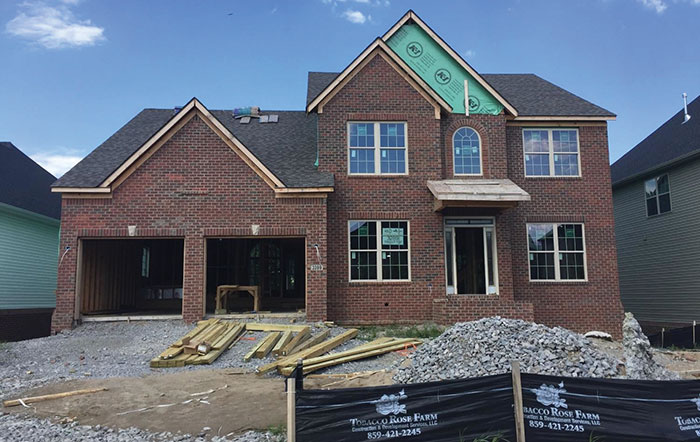
Worse Controversy:”So Painful” Kentucky’s Housing Crisis Threatening Economic Progress,Kentucky is currently grappling with a housing crisis that could undermine its economic development. Despite recent economic advancements, the state faces a shortage of affordable housing, particularly in urban and growing suburban areas…
Kentucky, known for its rolling bluegrass hills and burgeoning economic opportunities, now faces a harsh reality that could stymie its growth: a worsening housing crisis.
While the state has made significant strides in attracting businesses and improving job prospects, the lack of affordable housing looms as a significant challenge, particularly in urban and suburban areas. The issue has escalated to the point where it is not just a social problem but a major threat to Kentucky’s economic progress.
The Roots of the Crisis
Several factors have converged to create Kentucky’s housing shortage. First, restrictive zoning laws and outdated housing regulations have limited the development of new homes, especially in areas experiencing population growth.
These laws often favor single-family homes on large lots, reducing the availability of multi-family housing or smaller, more affordable units.
Second, the state has faced infrastructure challenges, particularly in rural areas. Many regions lack the roads, utilities, and services necessary to support new housing developments, deterring investment from builders and developers.
In urban areas like Louisville and Lexington, the situation is exacerbated by rising land costs and delays in permitting processes.
Third, Kentucky has not been immune to the nationwide trends of rising construction costs and supply chain disruptions.
Labor shortages, increased material costs, and inflation have made it more expensive to build homes, with these costs ultimately passed on to buyers and renters.
The Human Impact
For many Kentuckians, the housing crisis is more than a policy issue—it is a painful daily reality. Families are struggling to find affordable places to live, often forced to spend an unsustainable portion of their income on housing.
According to a recent study, nearly 30% of Kentucky households are cost-burdened, meaning they spend more than 30% of their income on rent or mortgage payments.
This problem is particularly acute for low-income families, who often find themselves competing for a shrinking pool of affordable housing options.
For these families, the lack of affordable housing is not just inconvenient but destabilizing, leading to increased rates of homelessness, school disruptions for children, and difficulty accessing jobs and healthcare.
Economic Consequences
The housing crisis is also taking a toll on Kentucky’s economic development. Businesses are finding it increasingly difficult to attract and retain workers, as potential employees struggle to find affordable housing near job centers.
This challenge is particularly pronounced in industries like healthcare, education, and manufacturing, where labor shortages are already a concern.
Without adequate housing, the state risks losing its competitive edge in attracting new businesses and investment. Companies considering relocating or expanding in Kentucky may think twice if their employees cannot find places to live. Additionally, the rising cost of housing is squeezing disposable income for many residents, reducing their ability to spend money in local economies.
Urban and Rural Disparities
The housing crisis manifests differently across Kentucky’s diverse regions. In urban centers like Louisville and Lexington, the demand for housing far outpaces supply, leading to skyrocketing rents and home prices.
These cities have also faced challenges in balancing growth with the preservation of historic neighborhoods, leading to heated debates over gentrification and displacement.
In rural areas, the problem is often the opposite: there is plenty of land but little investment in housing infrastructure. Many small towns struggle to attract developers due to limited economic opportunities and declining populations.
However, some rural areas near economic hubs are beginning to feel the pressure of housing demand as people look for more affordable options outside city limits.
Potential Solutions
While the housing crisis is a daunting challenge, it is not insurmountable. Several strategies could help alleviate the problem and ensure Kentucky’s housing market supports its economic growth.
1. Zoning Reform: Revisiting and modernizing zoning laws could allow for higher-density housing developments, such as duplexes, townhomes, and apartments, particularly in areas with high demand.
2. Incentives for Developers: Offering tax breaks or other financial incentives to developers who build affordable housing could help offset rising construction costs and encourage investment.
3. Public-Private Partnerships: Collaborations between government and private developers could lead to the creation of mixed-income housing communities, addressing both affordability and quality concerns.
4. Infrastructure Investments: Expanding utilities, transportation, and other infrastructure in both urban and rural areas would make it easier to support new housing developments.
5. Statewide Housing Initiatives: Kentucky could establish a statewide housing trust fund to provide grants and loans for affordable housing projects, similar to programs in other states.
The Path Forward
Addressing Kentucky’s housing crisis requires a comprehensive, multi-faceted approach involving policymakers, businesses, and community organizations.
Public awareness and engagement will also be critical, as solutions may require challenging long-standing norms and interests.
For now, the crisis remains a stark reminder of the delicate balance between economic growth and social well-being. Kentucky has an opportunity to lead by example, demonstrating how a state can confront and overcome a housing crisis while maintaining its commitment to economic progress.
The question is not whether Kentucky can solve this problem but whether it will act swiftly enough to prevent further pain for its residents and setbacks for its economy.
If the state rises to the challenge, it could turn this crisis into an opportunity to create a more inclusive and sustainable future.







